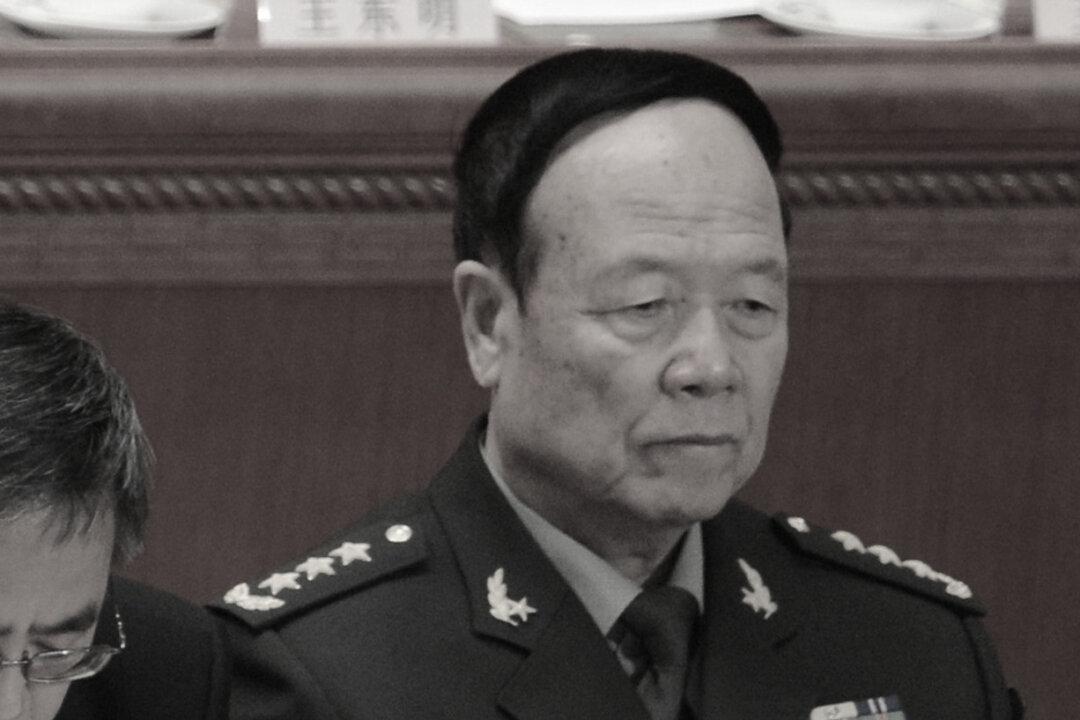Former top Chinese general Guo Boxiong has been expelled from the Communist Party for corruption, according to a decision by the Politburo late Thursday night, state-run Xinhua News Agency reported.
Guo, the former vice chairman of the Central Military Commission, the Party office in charge of the military, was put under investigation by the Party’s anti-corruption agency on April 9. It was found that Guo took bribes “personally and through his family members,” said a statement by the Politburo that was carried by Xinhua.
“His acts seriously violated party discipline and left a vile impact,” said the Politburo.
Guo has since been handed over to military prosecutors for disciplining.




